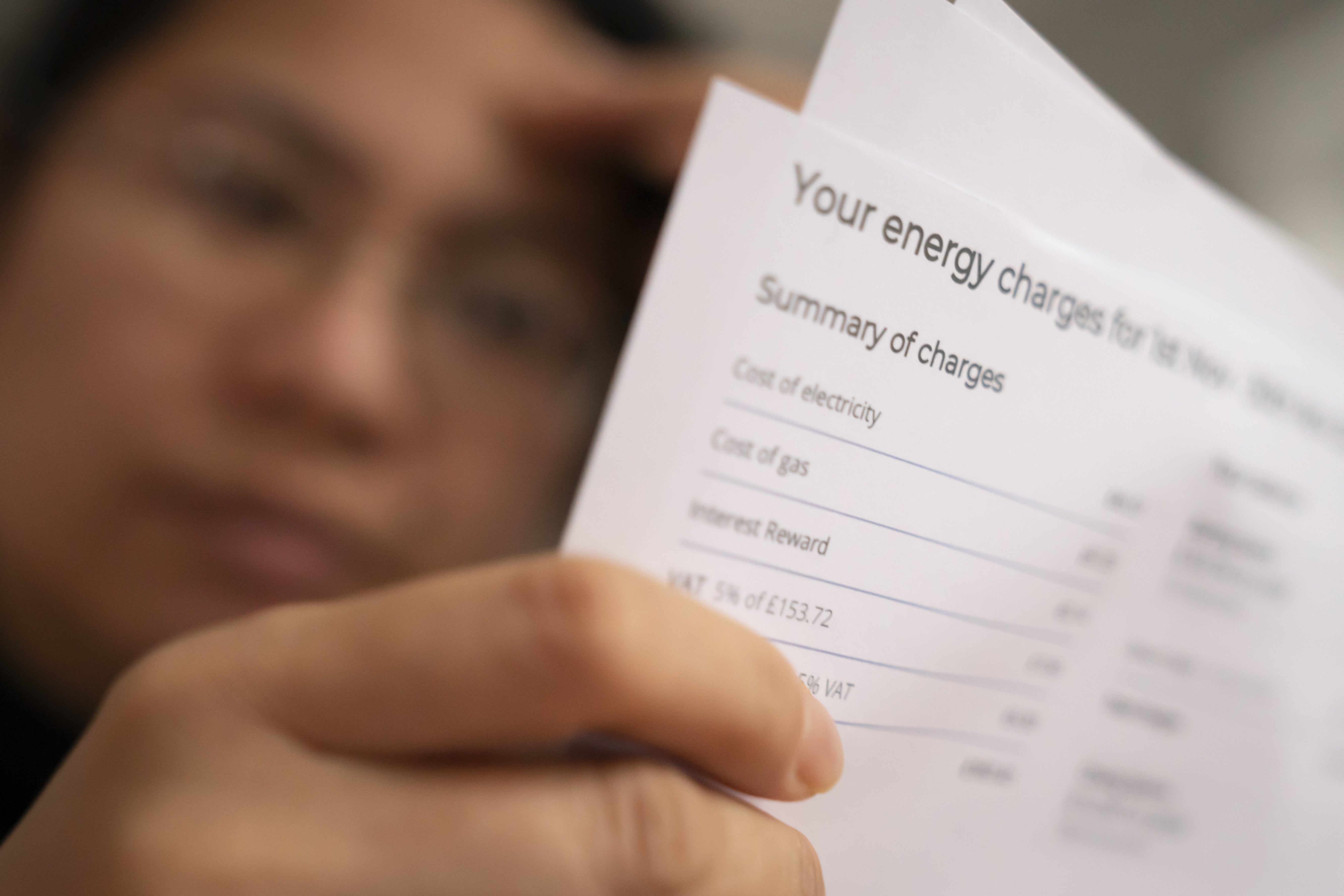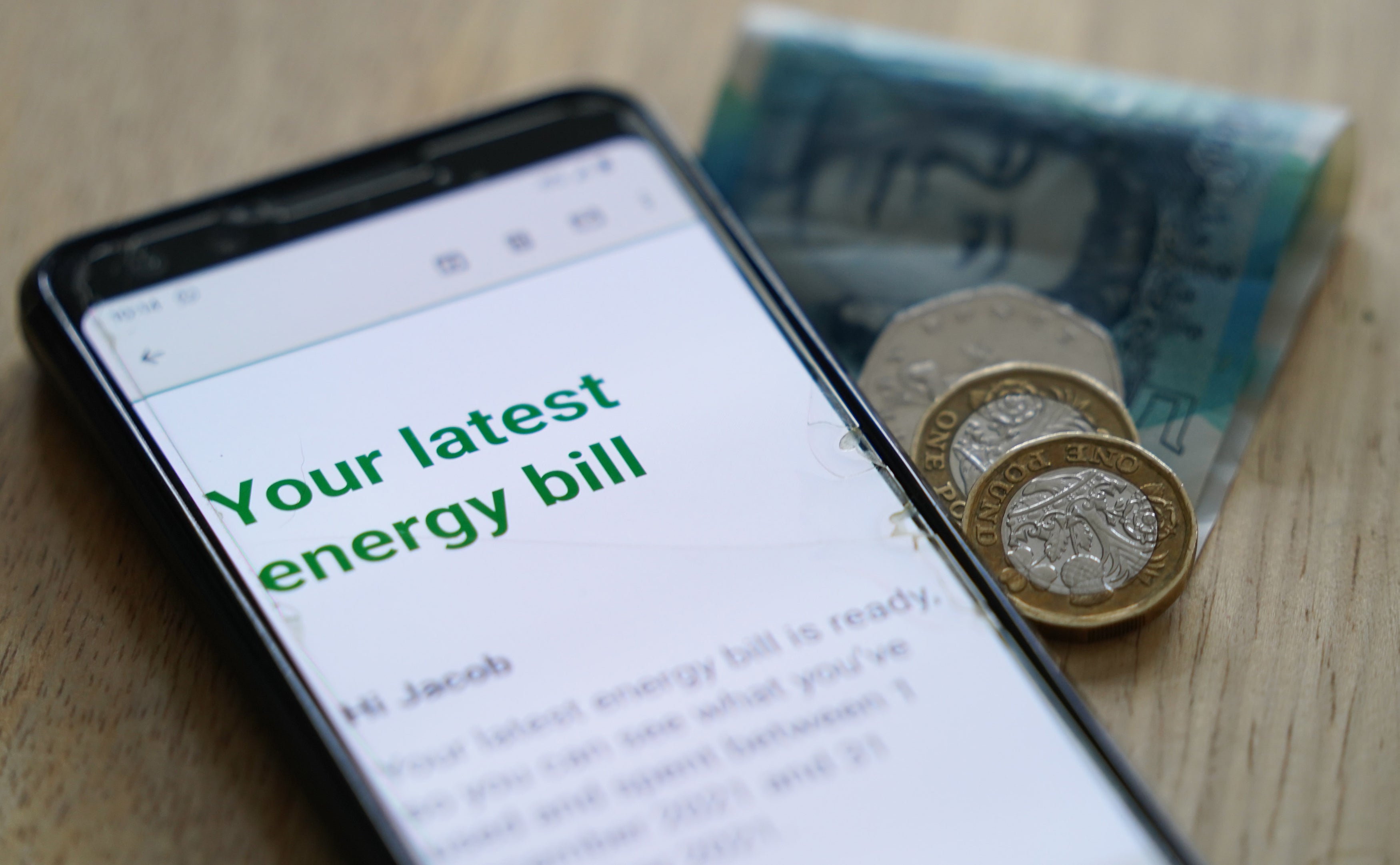Energy infrastructure companies have pocketed nearly £4bn in excess profits over the past four years as British families have suffered from escalating energy bills in the cost of living crisis, new analysis from Citizens Advice (CA) suggests.
The consumer charity has helped almost 700,000 people across England and Wales struggling to afford utilities in recent years - with more than five million households in debt to their supplier after energy costs spiked when Russia invaded Ukraine in late 2021.
In fresh analysis of Ofgem’s performance figures, CA said that energy network companies, which provide pipes and cables to people’s homes to deliver electricity, have been profiting from the high inflation driving the cost-of-living crisis.
Energy network firms are monopoly companies with no competitors, so consumers are reliant on regulator Ofgem setting price control charges.

Network charges on electricity bills represent the cost of using the electricity grid to transport power from the power station to your house.
They also cover the costs of maintaining and operating the crucial infrastructure. They are usually not separately itemised on a household’s bill, instead the supplier sets an overall price which reflects different costs.
Regulator Ofgem sets the price at which the network operators can charge for using their grid, to prevent excessive costs. Network charges make up approximately 25 per cent of a typical fuel bill for gas and electricity, according to the National Energy System Operator (NESO).
Citizens Advice have argued that Ofgem overestimated borrowing costs for network companies when they set the current price control. This has meant that company balance sheets have benefited from an almost £4bn excess profit windfall, their analysis shows.
Dame Clare Moriarty, chief executive of Citizens Advice, said: “We now know that while households have struggled with sky-high energy bills, network companies have been making astronomical profits.
“We’ve called out the billions of pounds of excess profits made by these companies before, and Ofgem said it would get tougher in subsequent price controls. The measures it put in place have clearly failed.
“Networks should now do the right thing and give this money to those bill-payers still struggling, by funding much-needed debt relief and targeted energy bill support.”

Simon Francis, from End Fuel Poverty Coalition, said the figures revealed “more about the murky world of energy networks”. He added: “These firms have a virtual monopoly over vital grid infrastructure and have consumers over a barrel. That’s why it is so important for the regulator to do its job”.
The average gas and electricity bill for a typical household in Britain is expected to rise by £85 from April to £1,823 a year - this is the third consecutive quarterly price cap rise.
Household debt owed to energy providers has soared over this time. The average electricity debt owed by a customer, who hasn’t yet put in place a plan to pay it back, has gone from £670 in 2019 to £1,558 towards the end of 2024. There were over 1 million electricity accounts in this position in autumn 2024, Ofgem data shows.
This week National Grid, one of the energy network companies surveyed, launched a £13.8m programme to fund support for energy poor families.
A spokesperson for Ofgem said: "The issue raised by Citizens Advice arose due to extraordinary levels of inflation in 2021-22. Inflation prior to this period has generally been close to the Bank of England target, meaning consumers paid a fair return.
"While the figures quoted by Citizens Advice seem large when added over many years, they amount to a few pounds a year on consumer bills. We did consider reopening our price controls to correct for this but, as Citizens Advice themselves have said, doing so retrospectively could have seriously undermined investment and been much more costly to consumers in the long term by increasing the cost of capital.
"After a wide and public consultation we decided to adjust our price controls going forward so that such inflation shocks do not lead to any excessive financial over-performance. We have also made clear that network companies can and should use the temporary effect of higher inflation to strengthen their balance sheets to benefit consumers and support those who need it most.”
A spokesperson for Energy Networks Association, representing the GB’s electricity networks, said: “Great Britain has one of the most reliable grids in the world, delivering power to 28 million customers, supporting 26,000 jobs and 1,500 apprenticeships and trainees. Today, running and upgrading the electricity networks costs about 48p per day on the average bill.
“Citizens Advice's analysis is overly simplistic and looks at a narrow two-year period, ignoring the longer investment timeline and the balance of returns across a five-year period. Electricity networks are bringing in private investment of more than £100bn between 2021 and 2031, investing in our grid to promote growth in our economy. It's crucial to keep the regulatory environment stable during this time."







